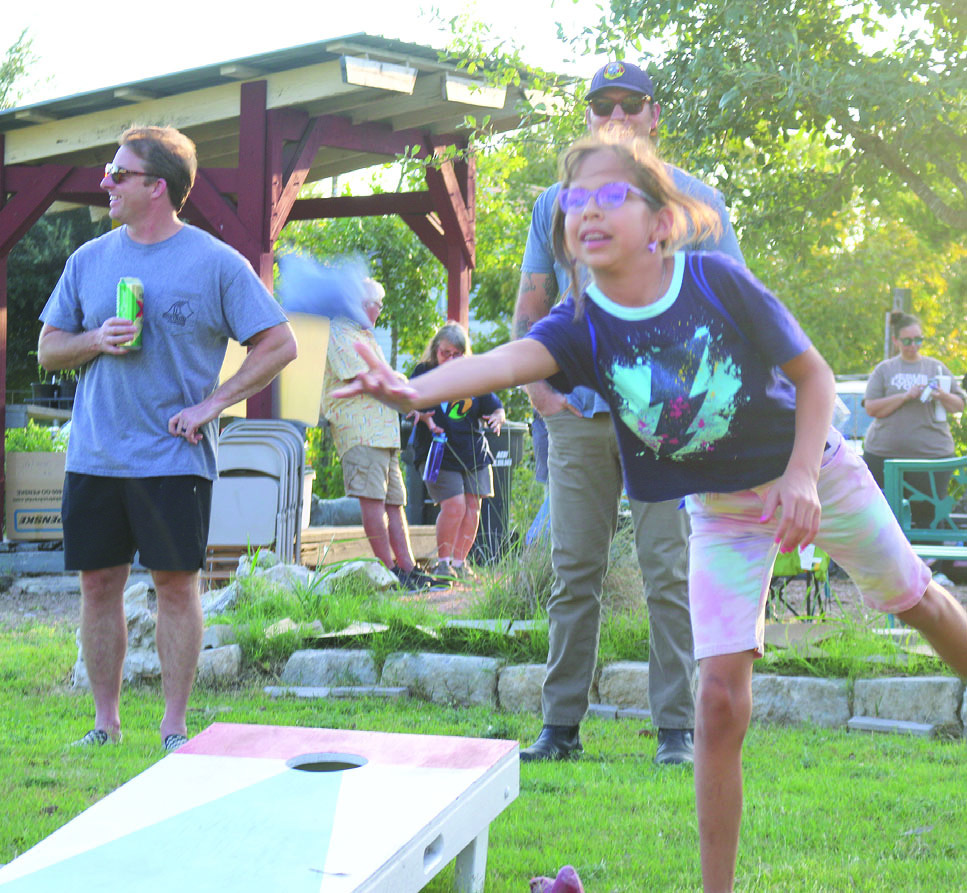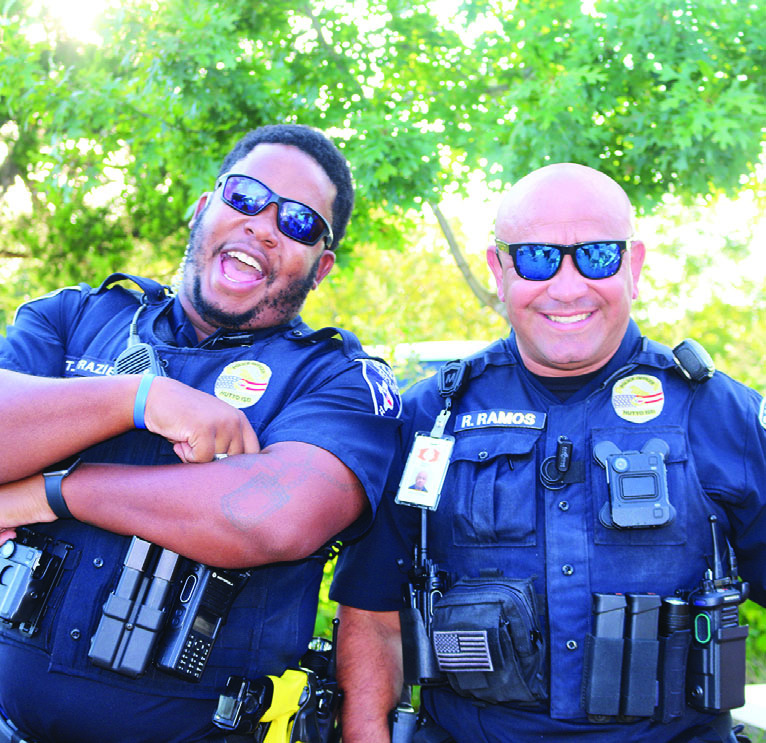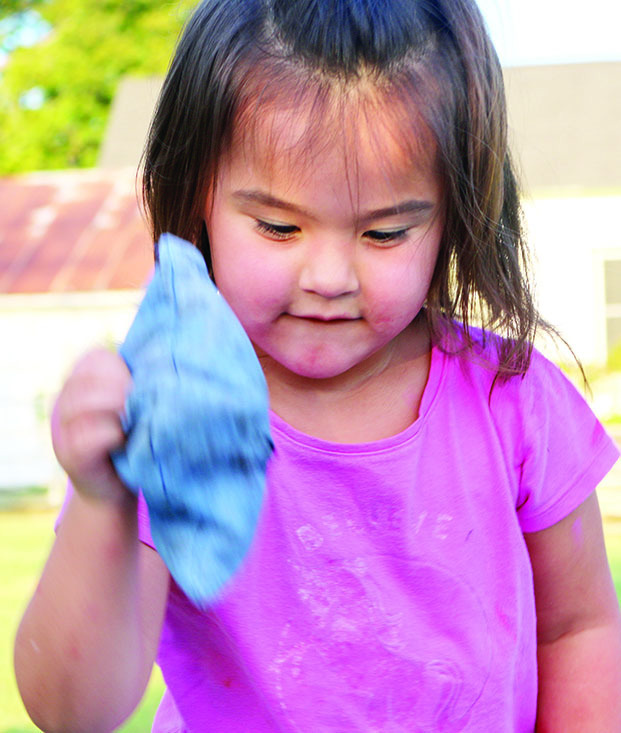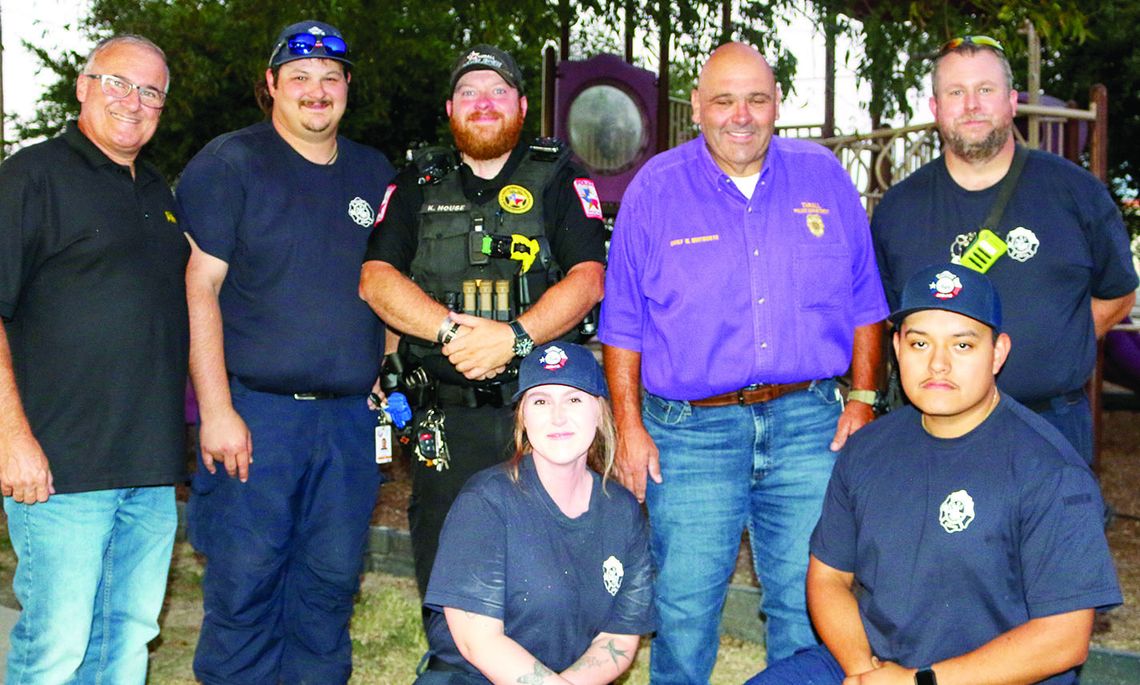The Central Texas burgs of Hutto and Thrall brought neighbors and first responders together on National Night Out with cookouts, bounce houses and other festivities to build stronger community ties, organizers said.
The events took place Oct. 1 to coincide with the countrywide observance.
Twelve neighborhoods in Hutto participated.
“What we’re doing here tonight is what we do every day with the kids,” said Officer Darryl Darnell of the Hutto Independent School District Police Department, while visiting an event at Peterson Community Garden.
“The biggest portion of our job is building a trusting bond with kids.
So they see the policeman is the good guy.
They see we’re here to help you.”
“The parents don’t always see us, so this can also give us a chance for the parents to interact and see what their kids are seeing,” added fellow Hutto ISD Officer Terrence Frazier. The purpose of National Night Out is twofold: promoting police-community partnerships and encouraging neighborhood camaraderie, according to founding organization National Association of Town Watch. Advocates say the program builds relationships that strengthen friendships, leading to stronger neighborhood watch groups and better relationships with law enforcement.
“We’re just like everyone here,” said Hutto ISD Officer Rodolfo Ramos. “We have the same complaints. We celebrate the same goodness of the city.
When we take off the uniform, we’re the same people as they are, part of the same community.” Thrall Police Chief Whitney Whitworth said that even communities as small as Thrall are no longer as closeknit as they once were.
The town of less than 1,000 residents held its National Night Out event in the city square.
Whitworth said when he recently conducted a wellness check, he discovered the person’s neighbors of three years had never met her, didn’t know what her car looked like and wouldn’t have noticed any suspicious activity or people coming and going.
“That’s where we’re at today, as compared to when I was a young man and you knew everyone on the block,” Whitworth said.
The chief said the behavioral changes are largely prompted by today’s commuter culture.
“We have a lot of young residents here.
They’re up early in the morning to be at their jobs in Austin,” he said.
“By the time they get home at 7:30, they kiss the kids, feed them dinner, go to bed and they’re up the next day doing the same thing.”
The chief added, “It’s not the community, it’s the country that’s changed.”








